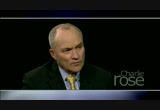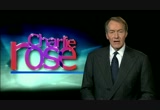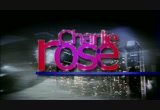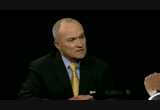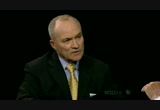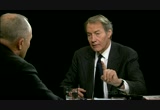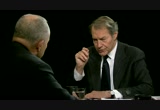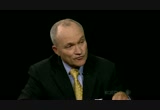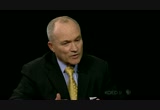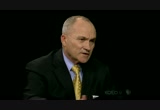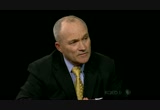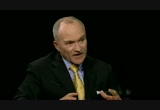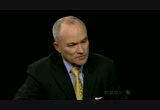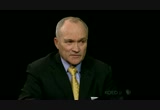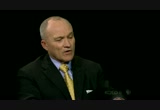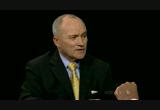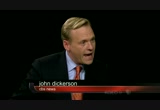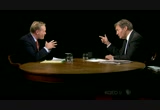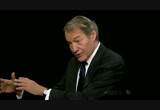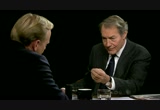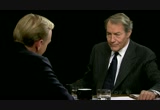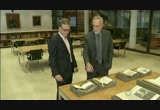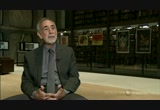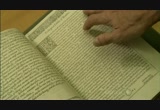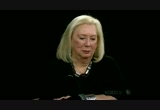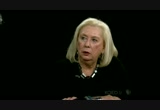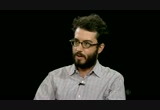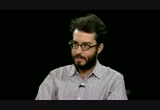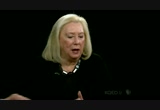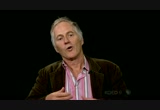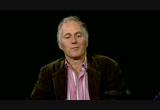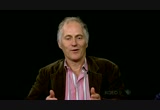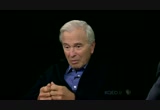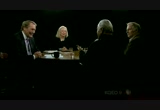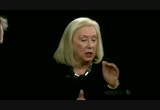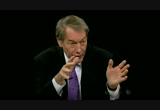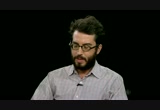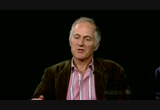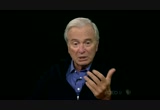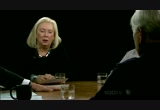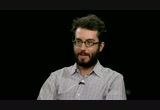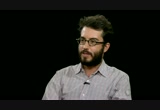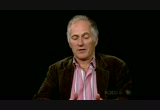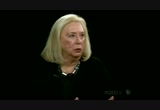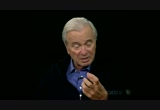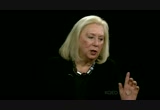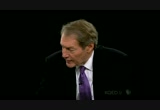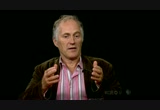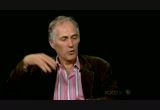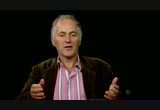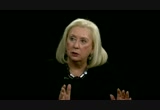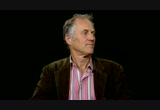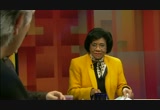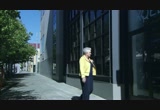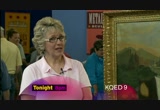tv Charlie Rose PBS November 5, 2012 12:00pm-1:00pm PST
12:00 pm
>> rose: welcome to the program, tonight we begin with ray kelly the police commissioner of new york, a man in the middle of the response to hurricane sandy. >> the scope of the damage, it looked to me t reminded me of vietnam-- veeted nam, seeing areas that were bombed out, you know, the b-52 bombings. obviously didn't have the structures there that we have here but just wide swathe of damage. >> it always happens in somebody else's backyard n the midwest or south. but something like this would just not anticipated and could not have been anticipated based on our history. >> rose: also this evening the last political weekend before the election on tuesday, we talk with john dickerson the political director of cbs news. >> ohio is still the granddaddy of them all. governor romney's going there the most of all the battleground state, the same with the president. right now you would have to say that the president has
12:01 pm
the better electoral map, the polls in more battleground states are favouring him. but romney is doing better in north carolina and florida, and on the early vote he's doing well in those states, doing well in colorado. but the president is doing well in iowa an nevada with the early vote which tells us a little bit how this thing is starting to break. >> we close this evening with this question what is the impact of the digital revolution on books, writers and publishing. joining me ken auletta, tim o reilly, jonathan safran foer an jane frieman. >> i like the idea of ebooks how they can democratize books. ma what i am afraid of is on platforms that have distracks an are inherently fast makes it harder to make books books. >> it is so important to have historical perspective. you know what we consider the book today is a relatively recent historical phenomenon. i totally disagree that
12:02 pm
12:03 pm
captioning sponsored by rose communications from our studios in new york city, this is charlie rose. >> this has been a difficult week for the city of new york four days after hurricane sandy made landfall life has not yet returned to normal. gas shortages, power outages and disruptions of mass transit stand in the way of a full recovery. joining me now is ray kelly, new york city police commissioner. his force has been at the front line of rescue and relief efforts. the police department is working overtime in all areas of the city. not only to detect criminal behavior but also to be engaged with all the people
12:04 pm
who are part of the response to this tragedy. i'm pleased to have ray kelly back on this program. welcome. >> good to be with you, charlie. >> rose: we taped this at 5:00 on this day. you just got a phone call about the marathon. >> yerk the mayor has decided to cancel the marathon. the marathon has always been a unifying force in the city. and he didn't want it to be something that resulted in division or divisiveness. so he's decided that the marathon shouldn't go forward but that the sponsors, he's asked the sponsors to do this and they've agreed to donate the money that they were going to contribute to the victims of hurricane sandy. >> so no marathon on sunday do. we know yet whether it will be rescheduled for another time or is it simply not going to be a marathon for a while. >> to the best of my knowledge it's going to be can selled for this year. >> there was growing
12:05 pm
tension. and this issue seemed to be getting an increasing amount of tension. >> yeah, obviously there was a lot of concern. people in staten island were concerned that resources were going to be somehow diverted from the recovery effort. that certainly wouldn't be the case for the police department. we have a way of staffing and funding the marathon that would not have impacted on the resource. >> rose: you could have done both and continue your effort and also taken care of what your responsibilities were with the marathon. >> that's correct. we could have. but, and we said that to the political leadership of staten island. but obviously they were still concerned. >> rose: tell me what you have been doing, you personally first, since you knew this hurricane was going to be imminent. did you going into this know that it could be this bad? >> no, i don't think anybody thought it could be this bad. >> rose: what you have called as the worst thing to happen to new york since 9/11. >> without a doubt. no question about it. but we have been very much engaged in preparation for, but you can only do so much.
12:06 pm
you can reasonably-- . >> rose: what was the preparation. >> you know, the preparation was to put police officers on extended tours to make certain that our own facilities in the flood areas were shored up as best as possible. we've have tabletop exercises that sort of thing. but nobody anticipated the storm being as bad as it was. >> rose: what did you need that you did not have there response to this. >> there is not something that you could have handled where additional material. i mean mother nature was mother nature. there is only some of you can do to prepare for it. this was overwhelming. the brent and scope of this storm is unlike anything that we've ever seen. >> rose: to staten island to westchester county, to long island. >> right. >> rose: to lower manhattan, upper manhattan. >> precisely. but the scope of the damage, it looked to me, it reminded me of vietnam, seeing areas
12:07 pm
that were bombed out, the b-52 bombings. obviously didn't have the structures there that we have here but this wide swathe of damage. and you know it always happens in somebody else's backyard it happens in the midwest or happens in the south. but something like this, of which is so the anticipated and would could not have been anticipated based on our history. >> rose: how do power outages affect the police department? >> well, power outages are big concern for number one security reasons. you have a blackout in a wide portions of the city, you have no traffic lights, you have no lights at all,. >> rose: not even in the precincts. >> we have some again-- we have generators in every precinct but we had precincts that were overwhelmed with water that we had to evacuate. we had water go up to the second story in the 100th
12:08 pm
precinct in rocaway, in the 60th precinct in cone island. we had the police service area 1 which is in our housing bureau was also wiped out. we had a steam fitter who was trapped in that building under rubble, two police officers went in and rescued him had. to swim in, get him out, pull him out frund the rubble and actually swim him to safety. that is one of many, many heroic stories. our special operations division had 3,000 rescues during the storm. and i'm sure the fire department had a like number. so the scope of this and the size is something we've never seen before and didn't anticipate. >> rose: and so what will you do now, what's the lesson as to what you might do in the future? >> well, there's always lessons learned from any event. we would like to have a lot more light towers that you can put in the blocked out
12:09 pm
areas that light up a block. we could always use more of those. more boats, we have boats that are actually assigned to precincts. we call them john boats. we have 40 of them. we would like to have a lot more. more motorized boats. you know there is a whole series of we had a written, i think it's now over 150 vehicles that were destroyed as a result of the-- . >> rose: who handled the evacuations? >> the evacuation was handled by a lot of different agencies. certainly the police department. most people obviously self-evacuated. they are leaving on their own. but there are people who can't do that. fire department, police department, help them do that through oem coordination. you know, many people didn't evacuate. no question about it. people, wouldn't say poo-pooed but they obviously just as we didn't anticipate
12:10 pm
the ferociousness of the storm. >> some people felt the last time it was not as bad as they thought it would be. they left, they came back. their property had been. >> that's right. >> had been stolen or whatever, broken into. and they thought i would be better off if i protected my property because the storm want as bad as they thought it was. >> absolutely. >> rose: this time they say i was stupid. >> i heard that from many people. >> rose: i did too. >> many people that we stayed to protect our property because last time something happened to it. you know, people in the flood zones. and obviously they regretted it. we are now up to 41 deaths associated with the storm. and if could certainly grow. >> rose: most of them were from what? >> we had 20 in staten island. drownings-- drowning, people, you know, in essence it was people who may have been hit by water and their head struck something or they just drown. they drowned in their own houses. people drown in their cars. of course we had the
12:11 pm
heartbreaking story of two kids, two and four years of age. >> rose: that made you cry. >> the mother put them on top of the car because the water was coming up and just a gush of water, wave took them away from her. >> rose: didn't she knock on the door and couldn't get answered wouldn't let her in. >> yes. >> rose: that's a story that kills you. >> those two bodies were found yesterday after-- wz the water tore them out of her hands. >> they were up on top of the car, and tore them away. and many, many other heartbreaking story. >> rose: speaking of staten island, you know the people in staten island in some cases are saying we were neglected. >> well, i can only tell you not by the police department. we have a major effort there. and we are also concerned about our own personnel who live on staten island, some how manies have been destroyed, eliminated. things that as a family we've got to address internally. >> rose: you have heard that before. >> yeah, i mean, i've heard
12:12 pm
that i can tell you that there is a tremendous focus on staten island. i mean they're vulnerable, really the coastline is big in staten island. i flew over when i was there visiting, or with the mayor. and the damage is just horrific. >> rose: anybody killed at breezy point. >> nobody was killed at breezy point. >> all the houses that burned. >> an off duty police officer who rescued his family and a grandparent, put them all up in an attic and he goes down to check the basement, never seen again. drowned in the basement. >> drowned in the basement. >> yeah. i mean the force of this is just hard to-- hard to imagine. but it came so quickly. >> rose: often in disasters like this whether it's earthquakes or hurricanes or-- there are people who seize the moment to commit crimes. >> right.
12:13 pm
>> rose: what's happened in that arena? >> we have had some burglaries. we've seen an increase in burglaries. crime is down over this period of time 35%. but we see an increase of 7% in burglaries. people breaking into homes. now will that go up in terms of reports, probably because there is a lag factor here of people going back to their homes, you know, may report it later on. but we're concerned about the potential for looting. and we have deployed a significant number of police officers. >> rose: so you think you have been able to limit the amount of looting. >> oh, yes. >> rose: by police work. >> no question about it. but these areas are going to be without power for a significant period of time, long period of time. so we've got to-- . >> rose: but even there i assume you are having a police presence by having cars on the street and things like that. >> absolutely. we have a very large presence there.
12:14 pm
>> rose: yeah. some are saying that this is a reminder of what, because of the power outages, that a cyberterrorist could do to a city. >> but we're very much concerned about cyberterrorism. no question about it, as a nation we've got to be concerned about it. you know, we can play offense as a country but we don't play defense very well. and that's the problem. even our own-- . >> rose: if are you playing defense you can lose one time and you have lost the game. >> precisely so they can do lots of things. and it's something that we as a country have to focus on, have to put resources into. i mean obviously this is the after smat of this hurricane is going to require lots of resources too. but cyberterrorism is a reality. to know that people are doing things to out the world, you know, shutting down countries. we've seen for, we saw what happened in the ukraine with the russians doing it, kpon
12:15 pm
knowledge. >> rose: what is happening in mali right now a lot of other places. >> absolutely. so it's going to be the new frontier. it's going to be the new front in the war. >> rose: when you look at what you have had to do, what has been the hardest thing for you as being in charge of new york police. >> at inn this storm. >> rose: in response to this storm. >> well, you know, just the requirement of having a large numbers of police officers in the affected areas. we are shutting down or greatly limiting other operations and we need to generate a significant number of officers in staten island, in the rocaways, in coney island. and to police the rest of the city as well. we 1r8.4 million people here who with-- they require police services throughout new york. now about 375,000 people have been impacted by the storm immediately in the
12:16 pm
zone. of course everybody has been impacted. there is no transit system, that sort of thing. but we've got to produce the resources, you know, to keep these areas safe. >> rose: governor cuomo said as you know these are the kind of storms you see every 100 years. now we see them every two years. they are the people, including the mayor who said there may or may not be some connection to global warming. clearly we're living in a different time. >> absolutely. >> rose: as a kid, you know, the amount of snow that you would see in the winter, snow 12 times, 15 times a year in my memory, you never see snowstorms. you see the tumultuous, this weird weather that is affecting us. so clearly something has happened. >> rose: that is a demand to change the infrastructure as well as pay more attention to as the mayor said when he made his endorsement yesterday. >> precisely. >> rose: he said it brings into sharp release political
12:17 pm
choices and that you really do have to be on the side of those people who are very concerned about global warming. >> exactly. >> rose: and expect political leadership to pay attention to that. >> precisely. >> thank you for coming. i know has been a-- police commissioner ray kelly, back in a moment. we'll look at the political weekend with john dickerson. stay with us. we turn now to the other big story that all of us are concerned about, it is the election of the next president of the united states. this is the final weekend for the candidates to make their final arguments, their closing arguments. we will understand more on tuesday night when the voters go to the polls on tuesday. it is a very close race. both sides think they're winning. we turn to john dickerson the cbs news political director for an analysis as we approach the election. welcome. >> we have about five or ten minutes here. give me a snapshot of where this election is as we go into this weekend and the
12:18 pm
candidates will be making their closing arguments. >> that's right. they're both making their closing arguments. they are all going to the same states. those eight battleground states. ohio is still the granddaddy of them all. governor romney is going there the most of all the battleground states, the same with the president. right now would you have to say that the president has the better electoral map. the polls in more battleground states are favouring him. but romney is doing better in north carolina and florida, and on the early vote he's doing well in those states, doing well in colorado. but the president is doing well in iowa and nevada with the early vote which tells it us a little bit how this thing is starting to break. >> rose: do they have two different views of america that they are appealing to? >> in this last moment they are both appealing to the last little undecideds. and so governor romney is making this case. he's basically saying you go with president obama, it's more of the same. >> rose: more years of what happened and are you not happy with what happened. >> exactly. and go with me and i have a
12:19 pm
plan. in his closing argument he goes through his five, he's even given some of his items, name, the names of the bills that he would enact. and the president is saying i'm not done yet. he says you know, i'm to the going to give up that fight. and then he goes in his closing argue speech he talks about various people. and he said they need a champion. so he is running as the champion for the middle class. and that is both a message to the base but it's also to those undecided voters. >> rose: romney is running as a champion of woman. >> romney is running as a champion of everyone, he says. and of course that is to deal with the lingering problems from that surreptitiously taped 47%. but he is saying now that he is running as the candidate of change. which taking president obama's tag line from '08 and basically saying i'm the one now who can provide kang because i've done it my whole life. and he ties it into his biography, i changed the olympic, i did it as a governor and private enterprise. >> rose: i always wonder who why it takes politicians so
12:20 pm
long to come to what might have been an effective audience. >> because they are going for other group, right now they are done with their base and going for undecided voters. there is a small number of them. the effective argument they are giving is now in part also because we're listening. there is a lot of -- some of this has been in the speeches before. but they've also then had to narrowcast and target to their own base which has put that other sort of pitch to the undecidings to the side as they've been pitching to their bases. >> rose: as you go through a campaign free media has more and more significance, i assume. you have debates and things like that that shape views. and does it therefore mean that paid media has less influence as the campaign gets closer to shall did -- because in other reasons people are tired of it. >> yeah. there is a lot of debate about this. so one theory of this election is that the advertisements that were run against mitt romney in ohio painted him. and that's why as this rapacious businessman and that is why he can't break through in ohio. then there is another argument that says advertisements don't stick with you very long is so all
12:21 pm
that money that was spent over the summer by the obama campaign didn't stick. and so now the money that is being spent in these last minutes by the romney campaign will stick because, they're reaching low information, undecided voters who are just now tune approximating in. they don't watch the news a lot. they get their messages now as they start to think here comes the election. they see an ad, that forms their opinions. off they go to the polls. >> rose: looking at your analysis, what do you worry about that you might have missed or might be wrong, you and others. >> two big things we could have missed. one, is the is is that romney has more than we think he does. that there is a group not getting caught in the polls that he's got support that is not showing up in all of these polls. >> rose: a silent majority. >> a silent majority. that is just a worry because you don't know. we trust in polls and the polls have shown a certain thing. you always think maybe we're wrong because they are so divergent. what the president what we might be missing is that his
12:22 pm
new coalitioning younger voters, minorities have really changed the way this election works. this is the argument the obama campaign has given for states like nevada, colorado, florida, even northern virginia. that the demographic changes have been so big that we have missed that. and that they have been able to tap into those new voters they have registered, the latinos. the big number these have registered in nevada, that they have been able to register them and get them to the polls in a way that is much more effective than we know. >> rose: john dickerson, thank you. >> thanks so much. when we come back the impact of the digital revolution on books and publishing. stay with us. john steinbeck once said the profession of book writing makes horse racing seem like a soiled, stable business. those words have never sounded truer than they do today. traditional publishings is in the threat from all angles am book stores are closing around the country. is there is a growing fear print technology is dying out all together.
12:23 pm
as always with great change comes great opportunity. digital technology has the capacity to bring new forms of reading and new modes of publication. but to understand what the future of the book might look like t helps to appreciate some of its past. >> the manuscript library was built in 1963. its white all was ter shell has no windows this is to protect the treasures within. we're joined by david who is currently writing his own history of the book. >> books aren't going away. i mean i think and the question is what role they will play seems to me its thing that is hard toast predict. one of the things that is really remarkable is as europe made the transition from world dominated by manuscript and manuscript proud the text that were bound into books, and by the end of the 15th century the print technology takes root. you find lots of people saying oh this print technology, it's very interesting. it's very efficient but everyone has access to
12:24 pm
everything, there are no controls. one doesn't really know if this thing has any real authority. the vocabulary in which anxiety-- are almost exactly the same, the kinds of anxiety about use wick pedestriania. >> talking about print and manuscripts, here we have two books which were circulating at the same time. what is different about the print version and the manuscript version. >> this is interesting. what we have here this is a manuscript, a commonplace book would be the term where a reader has carefully copied into what was blank pages, poem, mostly peoples by john dunn and this is the first printing of done's peoples. done was dead, he died in 1631. and dunn had never been very comfortable with the idea of his poems being printed. manuscript circulation was in a way safer.
12:25 pm
>> -- not quite familiar of the paranoia that they don't go to book but rather on-line it can spend by wildfire and get in the wrong hands of someone that might feel the same as other from manuscript to print. >> i think dunn z i think he was very conscious of that i think that print was unregulatable in a way that manuscript actually wasn't -- >> i think that narrative of displacement, you know this kills that, the famous line of hugo, i don't think it usually happens, though i will admit that the horse drawn buggy hasn't survived the car very well. one of the irreplacable aspects of the book as a object and as a technology is that the book absorbs histories. >> so we've got here two prayer books separated by 2 -- years. one of them is the most exquisite hand drawn beautiful manuscript and the other is a cheap printed
12:26 pm
copy deseened to look like the man you script. but what is it which is so unique about the printed copy. >> what is interesting about this one is that you see there, there is actually though this is a printed book, there's man script in it. and the writing in here this writing here says give me thy grace, good lord to set the world at naught it was written by sir thomas moore. this prayer book, moore had with him in the to per when he was incarcerated in 1534. and probably returned it to his daughter the night before his execution. >> book becomes not merely the way in which the text is presented by this container of just assumes value of all sorts. and some of it is a sort of fetish value. i was struck the other day, i read that someone is now selling a perfume that is the smell of old books.
12:27 pm
>> david, we talked about books and fetishes. and this is shakespeare's's 1623, perhaps the most fetishistic book of all time. what you might have forgotten is that all of these objects are commercial objects. >> that's right. >> but there is an interesting acknowledgment of this as the book was put together by two of shakespeares friends john and henry. they say here is the book. and you can read it and enjoy it anyway you want. do whatever you want. do so but buy it first. >> buy it first. >> but whatever you do, buy these are commercial properties and one way the book is the first mass produced object available for sale. >> my sense is i think if we didn't have books we'd invent them. and it does seem to me that durability is fascinating when you think that for the regime of the book has lasted 1500 years, hi a
12:28 pm
student a couple years ago who grandmother passed away. she said the one thing that made it better for her was that grandma had left her all her grandmother's books. and the young student looked at me and said it would have been really different if she had left me her kindl. >> joining me now ken auletta, he writes for "the new yorker" magazine, tim o reilly of o reilly media. jonathan safran to err and jane frieman who, it publishes and sells e books am i'm pleased to have each of them here to talk about something under great consideration. and some angst on the part of a lot of people it is the future of books in the wake of the digital revolution. i begin by this simple question, because you have talked about this. what is it that books mean? >> as we know them. >> books represent civilization. but they have to be read so they have to be affordable.
12:29 pm
and they have to be convenient to find. and what the e revolution has done is it has helped if in that arena. >> so you don't fear losing something that was in essence about what a book reading was about? >> absolutely not. i mean this is a format. what is the difference if a book is in hard bound or paperback or it's in audio which i think is a wonderful medium for listening to literature. >> and now the e format is just another for mat and as you know very well know, every one is holding some sort of device now along with hopefully as well physical books, i think there will always be a market for the physical. but it's a wonderful way to read. and we are seeing statistics very quickly, we are seeing that people are reading more now because books are so convenient. >> i think i disagree.
12:30 pm
for two reasons. for two reasons. one, you know, books are about having important conversations whether they are nonfiction or fiction, important conversations with culture, important conversations with yourself. and with the author. and if you think about the most important conversations you have in your life and where you would like to have them and how would you like to have them, the context matters. it's very hard to have an intimate conversation in a public place. it's very hard to have a slow conversation in a fast set organize when you are rushed. and i like the idea of ebooks. i look how they can democratize books. what i am afraid of is that when they are on platforms that offer so many distractions and are inherently fast, that it's going to be harder and harder to have what makes books, books which is that kind of intimate conversation. and secondly, it's hard to imagine how books can resist the temptations of the technology that will be available to them. you know, as soon as "the new york times" could print in color, affordably they
12:31 pm
started printing in color, in the case of the times, that is a good thing is it a good thing if novels start to include videos as they will have to, if they are on platforms that encourage video watching or make it possible anyway. >> is it good -- >> because people are accustomed to video and expect video. >> why wouldn't you have it. the "new york times" would be negligent if they didn't include video on their web site. we would say that it would seem silly to us. part of what makes books reallyix il rating and so open, and allow them to generate the kinds of experiences that they do are the limitation of the form. that it leaves so much room for the reader to do work. >> you have made the point that books have protected their art form more than any other. i mean they've taken care-- taken care of their territory. >> yeah, not for entirely good reasons. i mean books have been elitist historically. and haven't been as democratic as they should be and also conservative. if you think about i was in a gallery downtown 100 years ago as compared to what is
12:32 pm
in a gallery now they have almost no relationship to one another but the novel published yesterday would be recognized by homer. so it's been the saving grace of literature in a lot of ways but it's also run the risk, i think, jane is right that it runs the risk of push together remember every of the culture of making it something, the culture is better when more people are reading. we just want to make sure that those are real reading experiences. >> i can just say one thing on this, and that you were talk a little bit about enhancements. and i'm talking about actually just a new format of the printed word. and i think that there is a lot of conversation to be had about enhancements. and i think enhancements for fiction will be-- will not be de rigueur and that leads right to tim. >> i just want to say it is so important to have historical per speckive. what we consider the book today is a relatively recent historical phenomenon. i totally disagree that homer would recognize the book. you know, actually we
12:33 pm
probably more recognize the ebook because i actually read aloud, it is just recently i came across the wonderful introduction by freeman dyson to richard fryman's the pleasure of finding things out. and it's so beautiful that i have read it now aloud to four or five people because i have it with me. you know, i have all these books. i go oh, i have to share this with you. so in terms of that social interaction, that availability, there are new possibilities that come out when you have any book-- an ebook with you. i love books. i have probably 10,000 books, you know, physical books. and some of them are incredibly beautiful and i love them and i always want to have those beautiful objects. and i do think that one of the things that ebooks are going to do is it is going to force physical books to become beautiful again. i have to say, the modern, you know, book is pretty ugly, particularly the big you know honking hard back. i can fit a beautiful 1880s edition of the millon the floss my pocket, you know,
12:34 pm
and it's leather bound and gi why then do i get this thing that looks like this and it's purely was an art fact of trying to fill up as much shelf space as possible in the era of book stores. and that is, you know there are so many aberrations in modern publishing that were in this period of reinventing with. what is the book. and that's in everything from nonfiction where you say why would you put a dictionary in a book. why would you put a map in a book. you know, and we may even ask why would you put certain kinds of novels in a book. but there will be things that belong in a book and we'll figure those out. and we'll figure out the new possibilities that are inherent in the new forms and formats that were developed. >> what do you think we will include in a book. what kinds of things? >> well, certainly there are-- i mean there is that wonderful thing that experience of immersive reading. i don't think that will go away. it is engaging. but it has always been an elitist persuasion.
12:35 pm
and again, it's not that long-standing. you know, when you think about what was the best selling, you know, book in america in the 1850s, they were in the palms of longfellow that were red aloud. most people didn't sit there, you know, and i remember reading this amazing story when samuel johnson was reading, was seen to be reading a book without moving his lips. this is in, you know, in what, 200 years ago t was considered astonishing, this guy is look at a book and he is clearly reading it but he is not moving his lips. so 200 years of what we consider private immersive reading. you know, that's really all we are talking about. >> rose: ken auletta you write books and your wife represents some of our best authors. where is publishing going? >> well, i think it's an exciting time but it's also a scary time. scary time certainly if are you in the publishing business. it may also be a scary time in the author business. >> in the traditional
12:36 pm
publishings business that is very important. >> they are in a very scary position, clearly. book stores are in a scary position. >> did you here tim said the era of book stores which assuming that book stores are not longer viable. >> but then that raises questions. i mean one of the great things about a book store is you get these serendipitous purchases. people walk in and buy things by surprise. that is one of the things that fuels book publishing and their business. and book covers matter. people, the tactile feel of a book, people picking it up. if you lose that, if you lose book stores you lose that. i also worry and i am an optimist about ebooks and about enhanced books. and i understand that change is coming. but the conversation point that jonathan made i think is an important one. and it's also a conversation within yourself. i love the fact that i have books on my shelf. and i will forget about things. and i can wander around and i will say wait a second, isn't there a story in this
12:37 pm
carroll book that i want to reference in something i'm writing. and i love living in that. and for instance, i read last christmas catherine the great in ebook form. and i loved it. it's a wonderful book. and i said i have to go out and buy the book in hard cover because i need it on my shelf. and i had page marked it and i need-- but then i real itzed the pages don't coincide in the ebook and hard cover book. so i had to spend a goddamn half hour just going through and really it was not an efficient use of my time. >> but you know there has always been the physical book and if you want that on your shelf you want that on your shelf. and i don't think that will ever go away. for people, perhaps, of our generation. i mean one is not sure where the next generation is going. and not even the next generation but the generation behind that who are really truly digital natives. and who i was telling jonathan before that my granddaughter shows me how to use various parts of
12:38 pm
various devices. and she's three years old. but having a book on your shelf and i too have that 10,000 book library and i love it and i sit it in every day and i read some of them-- some books from my shelves and i read on my various devices. but i don't think that's what we are talking about. i think we're talking about the health of an industry, an industry that has been wedded to one way of doing things for a relatively long period of time in an industry. there has been no change. 2 has changed, and the publishers, the traditional publishes-- publishers to survive are going to have to change along with it. we never address the consumer. this is unheard of in a business that has a and i'm going say a word that i would never say as a literary publisher, a product. but we never address the consumer. we as editors and publishers took books on that we loved
12:39 pm
including jonathan's book. but the fact is we never knew who the audience was. we are now being told that we have to know who the audience is and e is allowing us to do that in a much more efficient way. >> jonathan, beyond the fact that you talked about how much you loved books and how important they were, does your rational side say i know this is a losing battle? >> books or paper books. >> book, well, books, period, booksment because a book is a book. how would you read it, you could argue and that is what jane has been saying here. but dow sort of say in the end i can see rationally the march of time and i know that my great attraction and love of this thing is going to go down. >> there are reasons to be optimistic an reasons to be pessimistic. >> why pessimistic. >> because book does something that nothing else can do and it's something that we need. and something that we want so if we lose books what
12:40 pm
will happen at the same time is we will lose our ambitions, our emotional spectrum will be narrowed. and i think is something happening now and i've been teaching for about seven or eight years. and i feel like i have seen it in the course of seven or eight years with my students. >> rose: seen what? >> seen an narrowing of a kind of emotional spectrum, a narrowing for expectations for personal experience as o toes-- opposed to overseeing experience or overheard experience. you know, ken said something so smart about browsing. and the internet has hijacked that word, you know, when we talk about browsing we're talking about surfing the web. but it he is a very different kind of browsing than browsing one's personal library or a book store because that is the kind of browsing that leads to a kind of further solidification of yourself. you go searching for something and the computer provides you with what you were searching for. amazon tells you what you like and they are right. they are almost always like but there is something better than that. what is better than that is to find something you didn't know you would like.
12:41 pm
and it's very scary we could lose that experience. >> i love the first part of your comments but i'm very surprised that you find less variety in the recommendations that come to you on the internet. i have to say, i was always a huge fan of used book stores because you actually had real variety. you go into a typical, you know, book store even a superstore, very heavily you know, cure rated by, you know, some buyer, you know, on the internet i'm continually finding things that you know somebody else was reading and they are talking about. or sharing. >> i want to move this. also to the idea of publishing, performing an entrepreneurial function. meaning authors can write books that may or may not sell, that whole idea of -- >> there is no question that if you look at amazon as democratized books or ebooks in the company like jane started, dem october advertises books it makes it available, more people to be able to write books. a question becomes what kind
12:42 pm
of business is it? i mean starting with the author. will the author be able to make money doing that? they have the freedom to write a book, they can self-publish a book now if they want to do it on their own nickel. but if they want to do it without an advance k they earn money without that advance. and how do you market a book, how do you get people to know about it. with people doing so many different things and surfing so many different ways, and with so much more available to them, so many more platforms how do you discover a book? that's a question. and that was the traditional thing the publishers did and did reasonably well. they have become fat and complacent and, and that say real problem. on the other hand i worry and gi back to the point we were talking about before i worry about the math can. publishers in a world where increasingly moving rapidly towards ebooks and the economy of ebooks is much
12:43 pm
more attractive no paper cost no printing, no contribution cost, no returns. >> no returns. >> huge advance, so at what point do publishers say hey, i have-- it's crazy to me economically to be publishings and printing booksing printing books, not publishing ebooks that is such a good point because in most other countries there were no hard bound booksment we did hard cover to help our p & l, our profit and loss statement. i do think that the hard cover book will start to diminish in quantity, yes. i don't believe that the publisher, that a true publisher will ever give up on printing physical books. >> i disagree with that. >> but, well, but i will talk to you about that. because i think that there will always be a want and a need for a certain group of society to have the printed book. and perhaps the printed book will become even more expensive and more valuable because it will be printed
12:44 pm
better and it will be done on better paper, et cetera. but i think the point of marketing is where this is all, where this all comes to. and how do you now sell your books market your books in the e form and i think it's a very good strong business model. >> before you answer it, i going to go back to jonathan because he has a service to go pick up his son. so what does it mean for you? what is the hard edge of this for you? >> i don't know exactly what it means for me. that is what is scary. i mean it's nice to be-- you know, i have some history of jane and trust her and it's nice to know that people who i think are intelligent and coming from a similar reading position that i do are at the forefront of these technological advancements. but there is a real extent to which writers are at their mercy. writers are familiar usly bad at defending themselves and famously bad at being informed about some of these really sweeping movements that are going to perhaps sweep them under the rug.
12:45 pm
so you know, as i said before there are a lot of reasons to be optimisticment some of them are kind of scary. the best day i ever had as a writer is about six months ago when amazon and itunes both had a sale on one of my novels. >> a daily deal. >> it was a scent. and i had more readers in that day than i had in the previous year or two. on the other hand what happens when books are sent, what happens when there is no floor. what happens when something as such cultural value is devalued commercially. you know, the industry, we're worried about the industry's survival but what you said at the beginning is right which is books are civilization. and i'm much more worried about sglifl civilization's survival than an industry's survival. so maintaining and spreading these all important, i think, habits of these conversation, thee intimate conversations is worries me more than what will happen to my books or to the publishers. >> one of the issues with printing is that there
12:46 pm
really is a step function in the cost of printing. you know. you print smaller quantities. it becomes more expensive. now it's certainly true that you can go print on demand. for example 80% of my company's books are now print on demand. even when we are printing 10,000 copies. you know, we're working with ingram and have done a fantastic job of building an infrastructure that let us us do whatever quantity we want. and it's integrated with a digital tool chain that allows us literally to publish a book to an ebook in five or six different formats. push it out into a digital tool. so digital distribution chain, you know, immediately so we have this new kind of logistics of book publishing which is very powerful, reduced cost. but i still think at some point there really aren't enough distribution points for many types of books for them to remain in print. that's not to say that there won't be some books that are still printed.
12:47 pm
but i guarantee you that i would guess that 80% of what is now put into, on paper will go away. >> well, i believe that 80% of popular fiction will become ebooks only. because i think that area just popular fiction, genre popular fiction will all go e. and but i do think that in literature in particular there will still be a p component but i don't disagree with you that it is switching. >> i think for a while actually the popular fiction will probably last long never print because there are still more outlets. they are sold in supermarkets. they are sold in aprils. >> but they are also downloadable on an airplane. >> i understand but yeah-- i do think that the trailing edge is going to be popular fiction from the point of view of market demand. >> what is the battle royalle today within the digital community about books i mean competition
12:48 pm
between amazon and apple and everybody else? >> and google and barns aibl noble. >> cobo before the apple deal with the book publishers with five of the six big book publishers amazon had 90% market share of ebooks. and with the publisher said was we have to create this what they called an agency model and the deal with apple, set prices, in order to attack this monday op below that amazon was gaining over ebooks. so what happened was that they gave a breathe tore barns and noble and google and obviously the ipad and iphone. and market share of amazon went from 90% of ebooks to 60%. then justice department weighed in and said this is a violation of anti-trust because are you charge consumers a higher price, worried about the consumer? and this is bad and therefore we're suing you.
12:49 pm
and forced to settle. and so the question then becomes, will amazon regain market share and approach once again that 90% which qualifies the monopoly. and what consequences does that have if they do achieve that? and that's -- >> of course this is nothing that the consumer knows about. i mean the consumer wants to buy books at a price that the consumer thinks is the right price. and i know that jonathan said something about devaluing books by having them at a lower price. i think that's a very old argue. i have to say that where money is at stake it's not the devaluing of the awe nors words, it's hurting the actual profit and loss statement. but i think that what is just most important is for, and having been a traditional publisher for a long time and to you being an e publisher only, i am really seeing that people are picking up the pace of
12:50 pm
reading and reading more and reading in places that they never read before. and so i am completely optimistic. i also think that we are in a very author-current trick time that we are pro the author, positive t is a positive time for authors to be published because they can publish themselves. or they can be published by traationol-- traditional or nontraditional fun lishers. >> what is -- >> it is actually confidence with the conversation, it is happening in newspapers as well where they are saying we cannot afford to print newspapers so it may be once or twice a week. christian science monitor once a week, "detroit news", cleveland plain, but "newsweek" saying we're just going to do it on-line that is happening it in the print world. not just in newspapers and magazines but obviously books, which is one of the questions why at some point there is at least the question mark where they
12:51 pm
will be able to continue publishing bound books. >> well, kind of come back though to socially what role books play. you know, sort of this cultural significance of the quote literary author, it really matters to a relatively small number of people. you know it's an elitist thing. there is popular fiction. there is serious nonfiction. you know, which is really in the same category as serious reporting of all kinds. >> you used this phrase elitist twice in this conversation watch. dow mean by that? >> what i mean is the notion by some group that their favorite activity is so important that it needs to be protected. >> what if it were defined differently as a group that says this is part of what you talked about earlier, of preserving the culture. >> i would say that the
12:52 pm
culture let me give you an example. take classical music watch we call cass call music today used to be popular music. friends list was like the beatles. and now class came music is in this get owe of this very small number of people who are, you know, playing for each other. and saying we should be subsidized because we're this important cultural phenomenon. the fact is, you know, the music that will be remembered from our era, you know, and will be the quote classical music of the future is the popular mubsic of today. i actually think that, you know, you know, look at classical-- classic authors. dickens, people, you know, literally that were riots when the new edition of a book, people trying to get it in far away places, the new-- came out, you know, but i-- since we've had this information i know you support things like pbs and npr. >> yeah. >> and one of the things they do is basically
12:53 pm
subsidize in part the culture with some government support of saying it's important. >> the amount of government support for pbs is relatively small, a huge part of the support comes from people who care about it. it's not actually a subsidized activity so much as it is subject to market forces and there are a set of people who say i want that i like it want to pay for it and i think you see this with new technology platforms like kick starter where people r you know, saying hey, would you like this, would you pay for this and there is this incredible new direct mechanism for authors an other creators to say would you care about what i wanted to do. >> i'm so glad that you brought that up. because i think the elitist element was that books were selected and it was the editor who selected it. and then it was put into certain book stores. and the independent book store which i am a great fan of was a little intimidating for people who didn't know, how to find the book that they want.
12:54 pm
then the superstores tried to make that better and the big box merchandisers but books have always been thought of as part of a true literature and fine nonfiction has always been thought of as a very small universal. and what e has done now and i'm so glad you mentioned kick starter which i think is brilliant. because why shouldn't people pay for a book that they want to be written. and it is a theory that anyone who has grown newspaper publishing thinks is absolutely cookoo, but it's not. because are you now having the consumer says that's a very good idea. and if a publisher won't give that you $10,000 advance, we are put up $100 and reach that $10,000. >> but you can have both. >> yes, you can have both and i believe we're going-- i believe we're going have both. tim and i disagree with tham. i think there there will always be, always, there will for the forseeable future be printed books.
12:55 pm
but i think that the move to electronic distribution of information and education and entertainment is going to come from the e space. and i am very, very encouraged. >> but here t goes back to your question, charlie about "newsweek". and it goes back to the question of newspapers. and it goes to the question of books. you always are going to have an economic issue. and the economic issue is how do you support things that are important. >> rose: thank you, thank you, tim, thank you, jane, thank you for joining us. see you nextime. captioning sponsored by rose communications captioned by media access group at wgbh access.wgbh.org
148 Views
IN COLLECTIONS
KQED (PBS) Television Archive
Television Archive  Television Archive News Search Service
Television Archive News Search Service  The Chin Grimes TV News Archive
The Chin Grimes TV News Archive 
Uploaded by TV Archive on

 Live Music Archive
Live Music Archive Librivox Free Audio
Librivox Free Audio Metropolitan Museum
Metropolitan Museum Cleveland Museum of Art
Cleveland Museum of Art Internet Arcade
Internet Arcade Console Living Room
Console Living Room Books to Borrow
Books to Borrow Open Library
Open Library TV News
TV News Understanding 9/11
Understanding 9/11